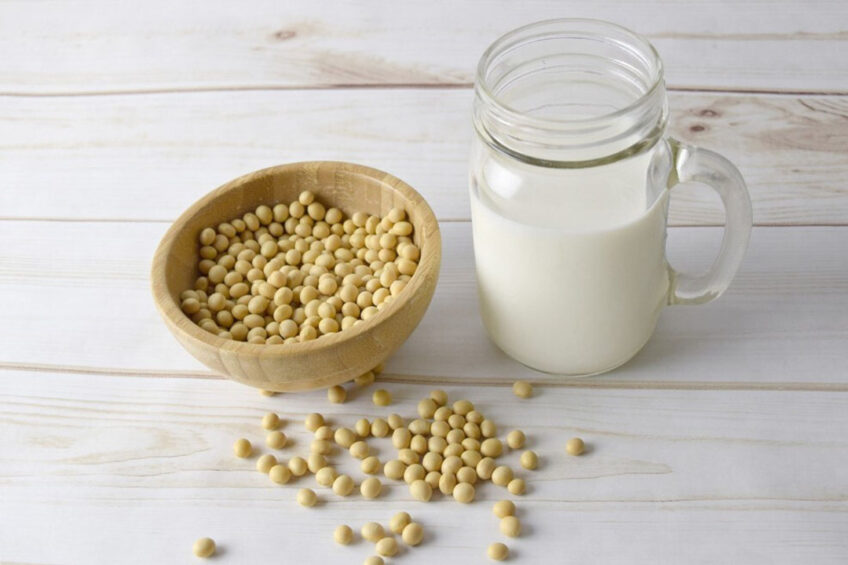Consumer perceptions of plant-based milk alternatives

What motivates consumers’ choice of dairy milk products over plant-based milk alternatives? In a recent survey, researchers from the North Carolina State University found that most consumers (73%) associate dairy milk with positive attributes compared to those with a positive association with plant-based milk alternatives (14%).
While dairy product consumption is motivated by both familiarity and habit, the present-day world shows that consumers who are conflicted or uncertain about dairy consumption can change their opinions based on marketing or educational messaging. Therefore, understanding how consumers perceive dairy milk and other dairy foods enables the development of dairy-positive messaging that aligns with their perceptions.
On the other side, consumer understanding of health and sustainability as they apply to the dairy category is complex – the reason why consumer messaging and education regarding the nutritional advantages of dairy as well as sustainability efforts and progress by the dairy industry are needed to keep the consumption of dairy products afloat.
The survey
To investigate parents’ implicit and external attitudes toward dairy milk and plant-based milk alternatives (PBA), a 2-part study was conducted. First, parents completed an online survey to determine their preference for either dairy milk or PBA. A subset of participants was then invited to one-on-one in-depth follow-up interviews to understand explicitly stated purchase motivations and guided recall of information heard about dairy milk and PBA to better understand external influences on milk perception.
Results of the survey
Most parents (73.4%) implicitly associated dairy milk with positive attributes compared with those with a positive association with PBA (13.8%) or with a neutral bias (12.7%). The stronger a parent’s implicit bias toward PBA, the more likely they were to purchase these products either alongside or as a replacement for dairy milk.
A total of 85% of parents in this study could recall drinking milk at home as a child, and 58% remembered encouragement from their parents to drink milk. However, only 38% encouraged their own children to drink milk (the majority, or 55%, were neutral toward their children’s milk consumption). It was highlighted that, generally, negative media messaging toward dairy milk and positive messaging toward PBA may contribute to this trend, even if consumers are not explicitly aware of their perception changes.
On the other hand, 77% of parents felt generally confident in choosing dairy milk or PBA for their children. Only 26% of parents felt that nothing about dairy milk or PBA information or messaging was confusing. The researchers found that sources of uncertainty about dairy milk included hormones and antibiotics, animal welfare, ecological sustainability, potential contamination, and intolerances or allergies. It was painted clear that by addressing the most encountered and recalled concerns about milk from parents, dairy producers may be able to increase trust and implicit bias toward dairy milk compared to PBA.
The researchers advised careful consideration be taken when planning dairy marketing messaging to ensure conventional dairy sales (and the industry as a whole) are not harmed while attempting to keep dairy competitive against plant-based alternatives.
“Understanding consumers’ perception of and purchase intent for milk and milk alternatives is a key issue for strategically positioning dairy in a changing marketplace,” they said.
Opinions on plant-based milk alternatives
In a report, researchers from the Institute for Food Safety and Health (IFSH), analysed a selection of plant-based dairy alternatives including almond, cashew, coconut, hemp, oat, pea, rice, and soy, all marketed under various trade names. Following their analyses, interesting comments popped up.
“It is certainly worth checking the labels on plant-based milk alternatives since some are sweetened and contain added sugars, and many are low in protein,” said Dr Reeves, the head of Undergraduate Studies and Student Experience at the University of Roehampton. “Furthermore, plant-based milks can be low in calcium, iodine, and vitamin B12 – nutrients that are normally found in cow’s milk – so have a look at the label to see if they are fortified. In my opinion, I’d opt for the milk that you enjoy most (taste-wise), and what fits into your own individual goals and situation.”
Concluding on their study published in the journal Food Research International, researchers from Cidade University in Brazil said, “plant-based alternatives can be considered a substitute for cow’s milk, but there is a need for its fortification so that its composition and nutritional quality are close to those of cow’s milk. There is also a need to ensure the palatability and acceptability of this milk substitute for the population.”
In line with this observation, researchers of the current survey commented that studies show that plant-based milk alternatives may serve a similar dietary role as dairy milk, but they are not nutritionally equivalent. “Most PBAs lack the vitamin and protein content of dairy milk, are not nutritionally complete protein sources, and have lower protein digestibility-corrected AA scores than their dairy counterparts,” they said.
The full survey results are found in the Journal of Dairy Science.






